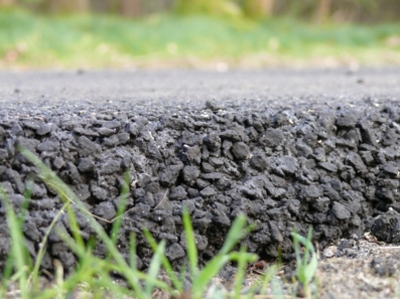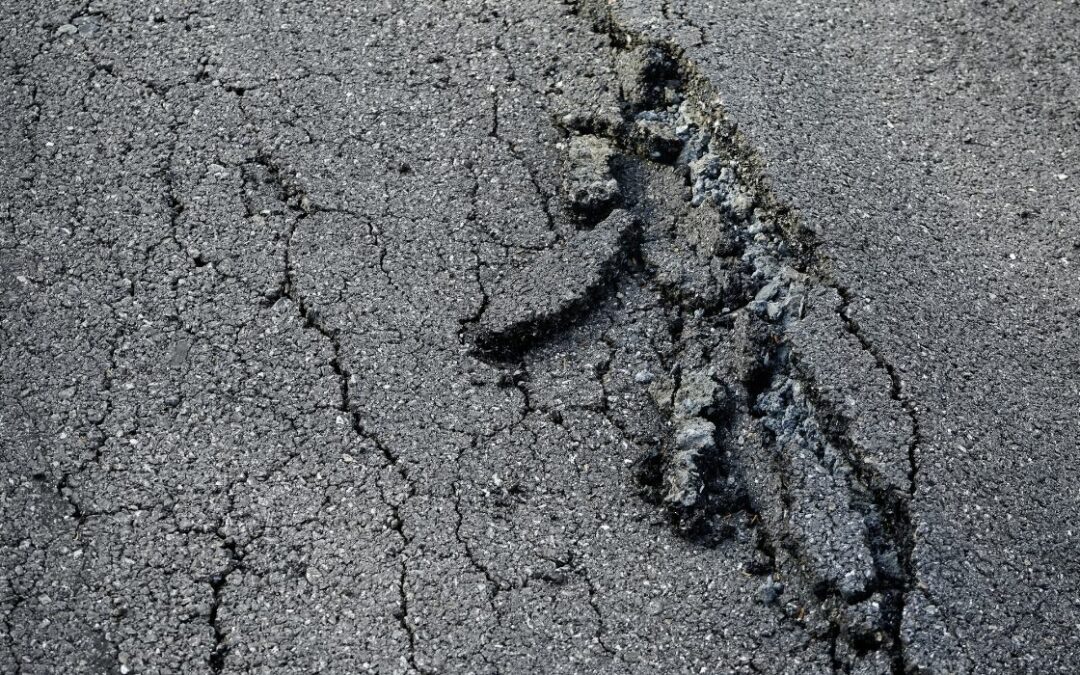Industrial Parking Lot Paving: Transforming Rooms with Hot Mix Asphalt
Industrial Parking Lot Paving: Transforming Rooms with Hot Mix Asphalt
Blog Article
Exploring the Environmental Benefits of Hot Mix Asphalt
The use of Warm Mix Asphalt in infrastructure projects presents a compelling case for sustainable growth and environmental stewardship. By diving right into the intricate details of its manufacturing processes and the ingenious use of recycled products, a deeper understanding arises of exactly how this modern technology surpasses mere surface applications. The ecological advantages of Hot Mix Asphalt prolong much past preliminary impacts, offering a nuanced point of view on just how this material can lead the way for a greener future.

Reduced Greenhouse Gas Emissions
The manufacturing procedure of Hot Mix Asphalt entails warming the mix of aggregate and asphalt binder to high temperature levels. By incorporating reclaimed asphalt pavement and recycled asphalt shingles into the mix, the need for virgin materials is lowered, leading to energy financial savings and reduced exhausts associated with extraction and handling.
Research studies have revealed that Hot Mix Asphalt sidewalks have a smaller carbon footprint over their life cycle contrasted to other pavement options. The durability and recyclability of Warm Mix Asphalt further enhance its environmental benefits by reducing the demand for constant maintenance or substitute, therefore conserving sources and decreasing discharges related to reconstruction tasks.
Energy Effectiveness and Preservation
The production procedure of Hot Mix Asphalt not only decreases greenhouse gas emissions but likewise contributes considerably to power effectiveness and preservation efforts. Power efficiency is a vital benefit of Warm Mix Asphalt manufacturing contrasted to other sidewalk kinds. The procedure includes heating the materials at high temperature levels to create the asphalt mix, which calls for much less power than alternate approaches. Furthermore, the capability to recycle and recycle asphalt sidewalk even more improves power preservation. By incorporating redeemed asphalt sidewalk (RAP) into new blends, the sector conserves energy that would have been needed to create completely new materials. The toughness of Hot Mix Asphalt decreases the regularity of upkeep and reconstruction, leading to lasting power savings. This long life decreases the energy-intensive procedures associated with frequent fixings and replacements. Generally, Warm Mix Asphalt sticks out as an ecologically pleasant option that focuses on energy performance and preservation throughout its lifecycle.
Sustainable Sidewalk Solutions

One secret facet of lasting sidewalk solutions is making use of recycled products such as reclaimed asphalt pavement (RAP) and recycled asphalt roof shingles (RAS) By integrating these products right into the asphalt blends, the need for virgin resources is minimized, bring about lower power usage and greenhouse gas emissions throughout production. In addition, the reuse of these products helps divert waste from land fills, adding to a much more round and lasting economic situation.
In addition, lasting pavement options concentrate on maximizing pavement style to enhance efficiency and longevity. Techniques such as cozy mix asphalt (WMA) and rock mastic asphalt (SMA) improve the longevity and resilience of sidewalks, reducing the requirement for constant fixings and substitutes. By carrying out these cutting-edge strategies, framework developers can create pavements that not only satisfy high-performance requirements however also reduce their environmental footprint.
Minimized Environmental Impact
With a concentrate on sustainability and eco-conscious methods, sidewalk solutions are developed to minimize the environmental impact of this page construction and upkeep procedures. Hot mix asphalt, in particular, provides several benefits that contribute to decreasing the general environmental footprint of roadway facilities. One crucial element is the recyclability of asphalt, which can be reused several times without jeopardizing its top quality. This characteristic assists in preserving natural deposits and reducing the quantity of waste sent to landfills.
In addition, the manufacturing of warm mix asphalt discharges lower levels of greenhouse gases compared to various other pavement products, making it a much more eco-friendly option. The energy performance of asphalt plants has likewise enhanced throughout the years, causing decreased fuel intake and lower emissions. In addition, the smooth surface area of hot mix asphalt minimizes commercial parking lot paving rolling resistance for vehicles, leading to lower fuel intake and reduced air pollution from lorry discharges.
Payment to Climate Modification Reduction
Warm mix asphalt plays a crucial function in mitigating climate change with its sustainable properties and minimized ecological influence. One substantial contribution to environment change reduction comes from the energy efficiency of warm mix asphalt production. Compared to other sidewalk alternatives, the production process for hot mix asphalt takes in much less power and emits lower levels of greenhouse gases, thus lowering its total carbon impact.
Moreover, hot mix asphalt's ability to reflect sunshine, called albedo, helps in reducing metropolitan warm island effects. By decreasing heat absorption and retention, hot mix asphalt sidewalks can lower the demand for cooling in city locations, consequently decreasing greenhouse gas discharges connected with power usage for cooling down purposes.
In addition, the durability and recyclability of warm mix asphalt further improve its environment adjustment mitigation abilities. Regrading. The long life expectancy of asphalt sidewalks minimizes the need for constant repair services or replacements, eventually reducing the carbon discharges connected to road upkeep activities. Moreover, the recyclability of asphalt materials lessens the need for virgin sources and reduces the environmental influence of pavement building, aligning with lasting techniques for environment adjustment reduction.
Conclusion
In conclusion, the environmental benefits of Hot Mix Asphalt demonstrate its substantial payment to minimizing greenhouse gas exhausts, preserving power, and lessening ecological effect. find out This sustainable pavement service aligns with climate adjustment mitigation initiatives, promotes resource conservation, and boosts framework development. By making use of recycled products, energy-efficient manufacturing processes, and long lasting style, Warm Mix Asphalt plays a critical role in promoting a more ecologically pleasant method to facilities building.
The manufacturing process of Hot Mix Asphalt involves warming the mixture of accumulation and asphalt binder to high temperatures. By incorporating reclaimed asphalt sidewalk and recycled asphalt tiles right into the mix, the need for virgin materials is reduced, leading to power savings and lowered exhausts associated with removal and handling.
One trick element of sustainable sidewalk services is the use of recycled materials such as redeemed asphalt sidewalk (RAP) and recycled asphalt roof shingles (RAS) Techniques such as warm mix asphalt (WMA) and rock mastic asphalt (SMA) improve the resilience and durability of pavements, decreasing the requirement for frequent repairs and substitutes. Contrasted to other pavement alternatives, the production process for hot mix asphalt takes in much less power and releases lower levels of greenhouse gases, thus reducing its general carbon impact.
Report this page